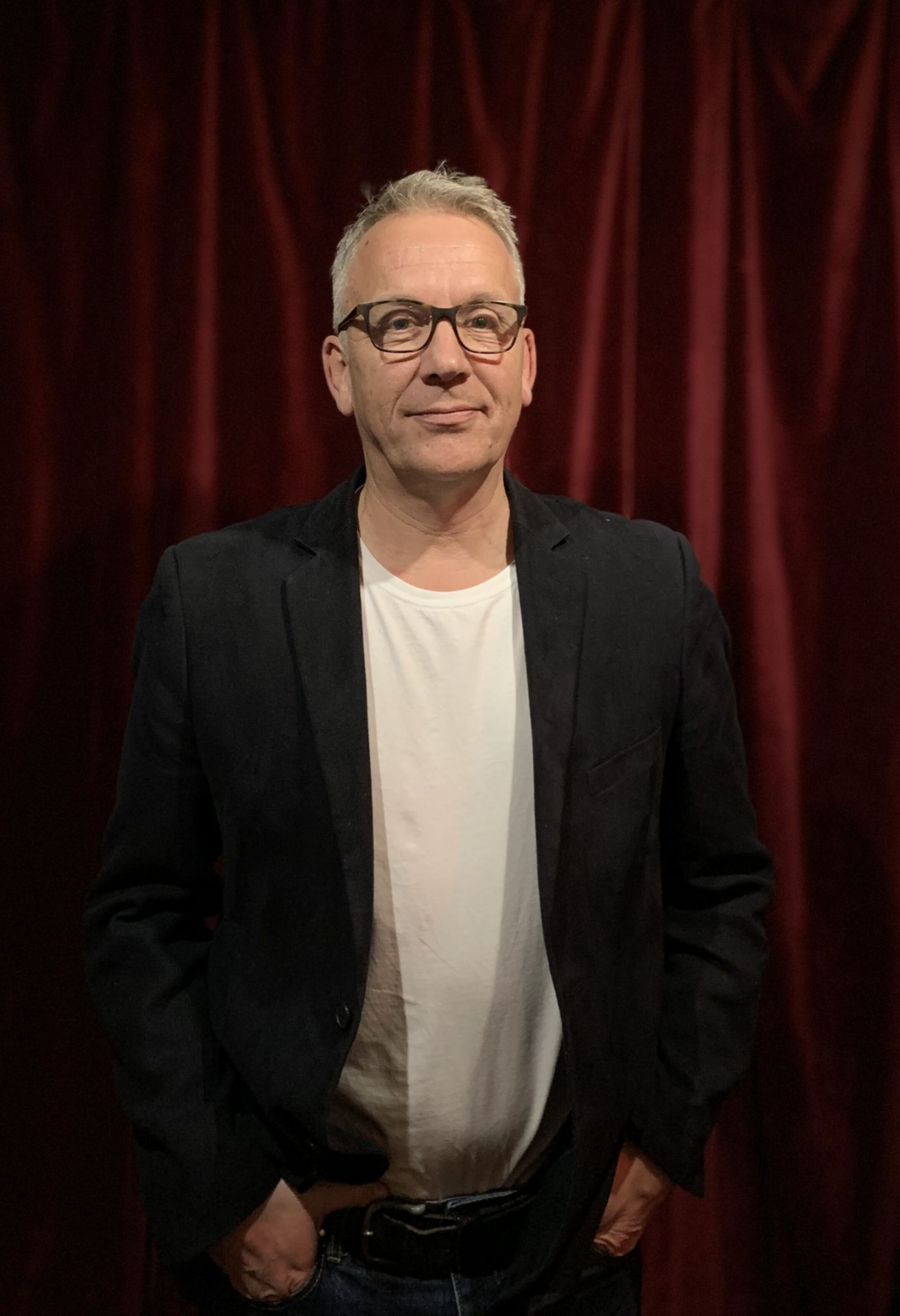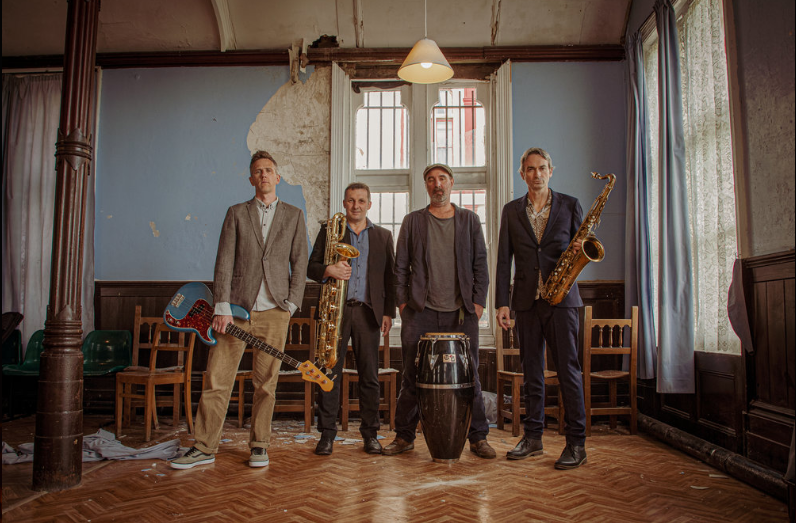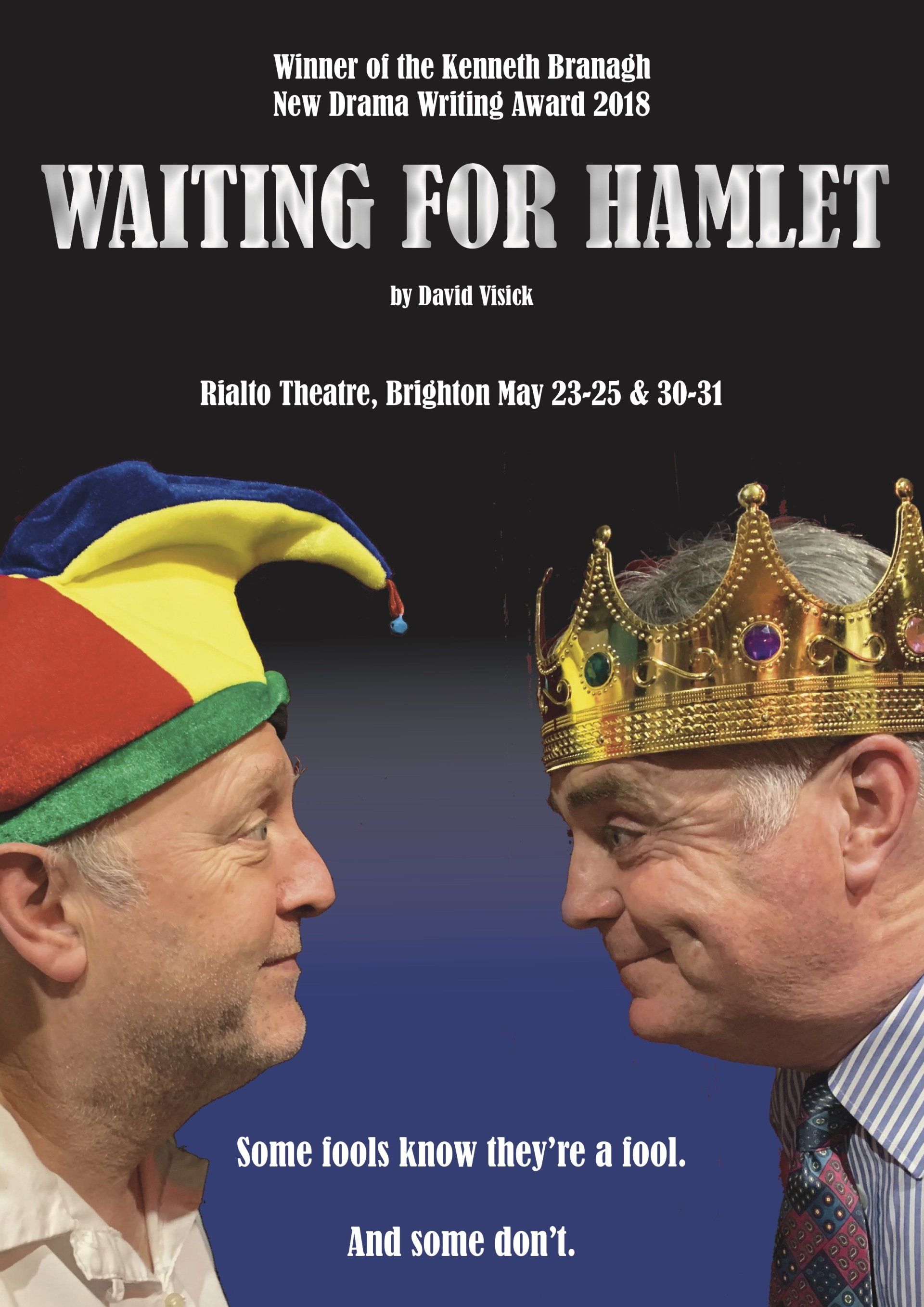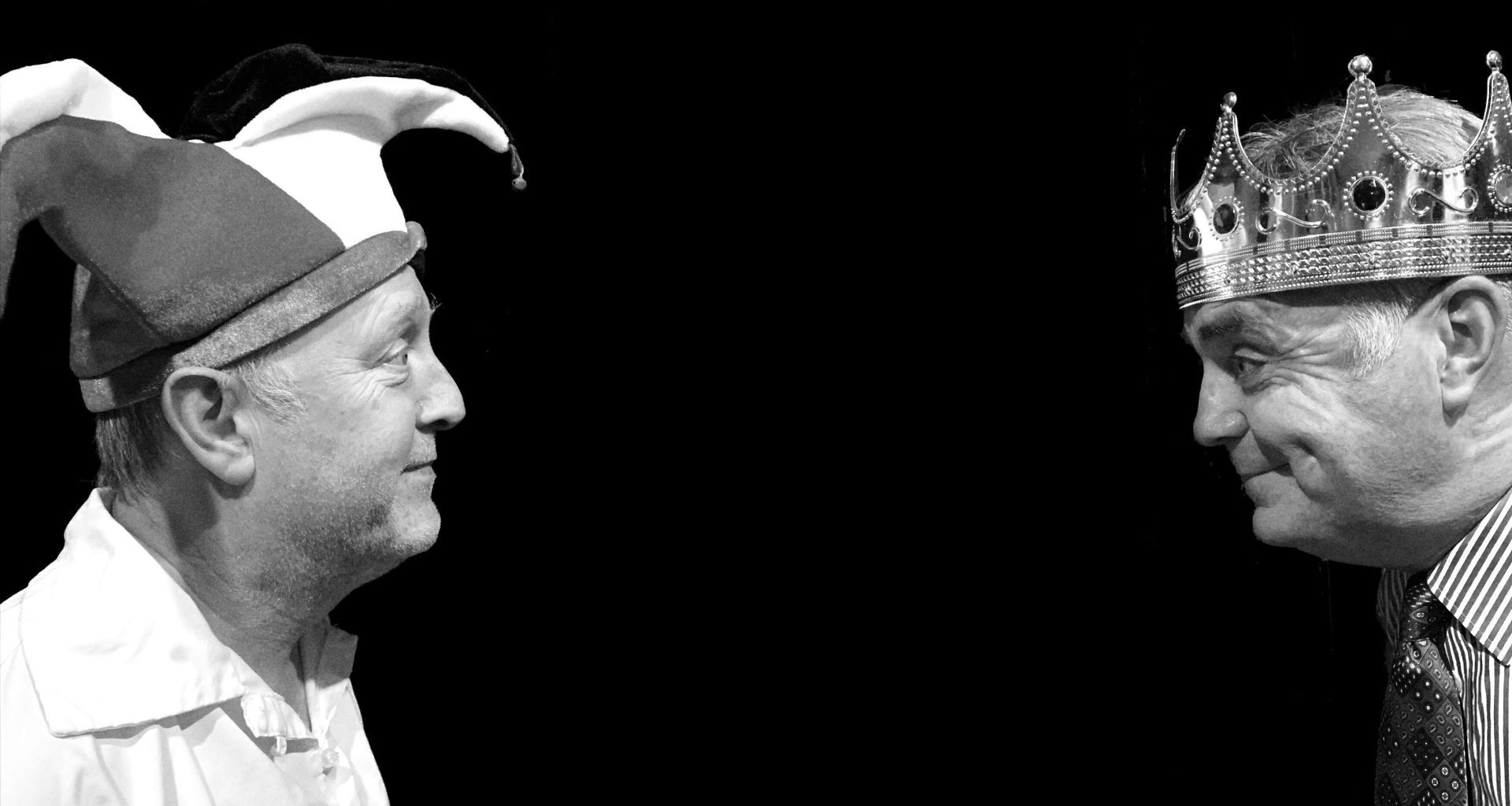Blog Layout
Waiting For Hamlet with David Visick
SussexEveryDay • Dec 10, 2019
David Visick - Waiting For Hamlet

"Winning the Kenneth Branagh New Drama Writing Award last year felt a little bit unwarranted, because Waiting for Hamlet was my first attempt at writing a play, and it’s only in hindsight that I realise how lucky I was to get any recognition at all with my first script. I didn’t even know how to lay out the pages correctly, and looking back at the version that the judges saw eighteen months ago, I’m surprised I even had the nerve to submit it. I’ve always written, and maintained a reasonably successful blog for ten years, but I had no idea if I had anything to say that would appeal to anyone but me and a few hundred internet geeks. It’s very easy to tell yourself you could have been a half-decent writer if only you’d had more time and fewer distractions, and I nearly let myself get away with that, but then at the age of fifty-four I decided I really should go and find out whether that was true or not. This is the reckoning.
Sitting in the audience waiting for Waiting For Hamlet to begin was one part terror, because you have a firm conviction that your jokes aren’t funny, your dialogue is clunky and the clever-clever literary allusions that made you snicker with pride on the sofa when you wrote them will be exposed as hideously pretentious hackery by the stage lights. And one part the firm knowledge that the professionals out there under those lights will paper over all those cracks with their skill and craft and breathe more life into the words than you ever imagined. The writer’s the least important person in the production, I’ve learned, and far too close to the words to be of much use to the performance.
Everything that happens in Hamlet, all the tragedy, madness and death, stems from Hamlet’s father’s decision to try and reclaim his throne from his brother, Claudius, who’s pinched his wife as well. Old King Hamlet is used to getting his own way and is undeterred by the slight obstacle that he is, even before the start of Act One, stone cold dead. I thought it would be interesting to explore the process that leads him to make that terrible ghostly intervention on Elsinore’s battlements, which starts a process where five acts, four hours, two intervals and a tiny but somehow still extortionate tub of Haagen-Dazs later, everyone he loves is dead. So I gave him a companion, his long-dead old Fool Yorick, put them in a sort of purgatorial waiting room between heaven, hell and Earth, and imagined the conversation they’d have in the run up to Shakespeare’s first line, ‘Who’s there?"
I
think we can agree that Hamlet's not a comedy, and you’d have to have a very dark sense of humour and a worrying irreverence towards our greatest ever playwright to think it was. Fortunately, I have both. The body count accelerates almost farcically towards the end and, with apologies to anyone who has managed to avoid spoilers these last 415 years, there’s a poisoning, a stabbing, a drowning, two executions, another poisoning, another stabbing, and two combined stabbing-and-poisonings. I’m not the first to think there’s comic potential in that, and along with the two very obvious influences referenced in the play’s title, there’s an even more obvious third, Rosencrantz and Guildenstern are Dead. If the critics realise you’re stealing from Shakespeare, Beckett and Stoppard for your first play, you’re going to need a pretty good sense of humour.
It was the plot that drew me, but more generally I love the language and the way that even in the darkest plays there’s a scene like the gravedigger in Hamlet or the porter in MacBeth, where some clever-clogs underdog shows up the stars of the show with dazzling wordplay and big silly puns. I thought it was fun to suggest that the two characters were in their own way waiting to go on stage for the biggest roles of their lives, or deaths. While they are lost souls returning from limbo, they are also actors with parts to play, and the fear and excitement they feel as they pass through the curtain is the same. Shakespeare’s Hamlet includes a play-within-a-play, and mine's more a play-before-a-play. It also gave me an excuse to make a few jokes at actors’ expense, about their own obsessions and insecurities. They’ve taken it very well, so far.
I was a teacher of English and then a journalist. One taught me to love words and how they love to dance, and the other taught me to stop them dancing when they’re not supposed to. Years of being forced to edit your own work is a great education. Now I write articles and speeches on political and legislative issues, so precision and economy are more important than lyrical flourishes. Of course sometimes in that line of work you want to be deliberately obfuscatory, and that’s an acquired skill too.
There’s an exchange in Waiting for Hamlet where the Fool says “We should have a vote,” and the Kings says “That will never work - there’s two of us,” to which the Fool replies, “I’m not saying it won’t be a close-run thing.” I thought ’two of us’ would get a giggle and ‘close run thing’ was the payoff. But at a recent show the audience went up at ’That will never work,” because it relates to our current political turmoil. It wasn’t meant as a clever satire, it was a set up for the dumb joke that follows, which of course they missed because they were already laughing. Six months from now, that early laugh may have gone again, if we’re lucky. I have learned that an actor can make a mediocre joke funny, but also that there’s sometimes very little they can do badly-written line even if it carries a humorous idea. It can be as simple as one beat too few or one syllable out of place. You don’t really know until you hear it come out of someone else’s mouth.
It’s an old, well-worn premise; the fool who knows he’s a fool, and the fool who doesn’t. Mel Smith and Griff Rhys-Jones played on this wonderfully with their head-to-heads, and Peter Cook and Dudley Moore before them. Long before that, though perhaps not as funny, you had Lear and his fool. They’re also the ultimate odd couple, the king who has always got everything he wants, and the fool who has had to literally make a fool of himself to get by, thrown together and reliant on each other to move forward.
I grew up in Eastbourne and liked the idea of starting this new project in the same street where my then-girlfriend played Guildenstern in Hamlet twenty five years ago at the Underground Theatre, at the bottom of Grove Road, and where we got married two years later, at the Town Hall at the top. I’ve re-written and extended Waiting for Hamlet since its first run of performances and wanted to hear what an audience made of it. You need a couple of very good actors to hit the jokes and the drama while sightreading, and fortunately we have those in Tim Marriott and Nicholas Collett. It was a joy to see them throw the words and themselves around the stage. We followed the reading by asking questions of the audience - did they understand it, was it funny, did it make sense? You do need a little basic understanding of Shakespeare and Hamlet to get full value out of it, but if you don’t have those, what are you doing at our show anyway? Get yourself to The Globe and start from the top.
I’m looking forward to working with Tim and Nicholas and our producer Joe Angella over the course of 2020. We’ll be taking Waiting for Hamlet to festivals throughout the summer, including Brighton on the 23-25 and 30-31st of May. The other chaps are old hands so I know my baby’s in good hands. It’s going to be wild ride and I’ll be reporting what I learn along the way in the Writer’s Blog at waitingforhamlet.com. Whether it ends in tragedy, comedy or history, I’ll enjoy it equally. Or try to, anyway.
I have three more plays on the go - all revelling in the joy of words, I hope, and I’d like to think all funny and quirky, although that’s still to be proved, of course. Someone pointed out that three of the four plays I’ve written in the last two years involve ghosts of loved ones, two of them fathers. My own dad died in an accident two years ago. We humans are very simple organisms sometimes."
David Visick

By SussexEveryDay
•
20 May, 2022
Meet Sam Chittenden, Artistic Director for Different Theatre Sam, what are you looking forward to the most about bringing Different Theatre back to Brighton Fringe? I’m just really excited about being part of the buzz that is Brighton fringe, and hopefully to the festival being back to some kind of normal this year. Brighton fringe is where we started out, so it’s always really special to be back. This year I understand your company are staging three productions this year? What are they? We are bringing Clean! The Musical back to One Church from 20-22 May. Clean won Outstanding Show last year and we are thrilled to be able to share it with audiences again.

By SussexEveryDay
•
26 Feb, 2020
Chris, how long has Samaki been running? How did all start? Samaki was formed a year and half ago. Living in Hastings as a musician, it’s impossible to ignore how much people love music here and how eclectic the live scene is genre wise. It seemed right that there should be an afrobeat group added to the local lineup of bands. With that in mind I went around getting like minded musicians together and the rest is history. I have fond memories of playing songs from the afrobeat lexicon at school in New Zealand where I grew up. One day there, an English band called Moire Music fronted by Trevor Watts visited our school and introduced us kids to the world of afrojazz. Something I’d never forgotten and it was a huge influence on me musically. Just a few decades later I found myself living in Hastings and discovered that Trevor actually lived there. It seemed like a sign. And how did you decide on the name Samaki? Samaki is the Swahili word for fish. As we’re Hastings based we wanted there to be some sort of reference to our geographic location. Could you try to sum up your sound in just three words? Soaring Melodic Groove Some of your influences include Fela Kuti, Tony Allen and Oscar Sulley. How can their influence be heard in some of your music? The 3 names you mention are intrinsically part of the genre of music we call afrobeat. If you perform their tunes or perform like them stylistically, you’re in a way carrying on their musical legacy. It’s unavoidable. We play a Fela Kuti song in our set - Water Get No Enemy, and it’s in this song that it becomes obvious that the combination of relentless groove and highly melodic hooks make afrobeat what it is.





